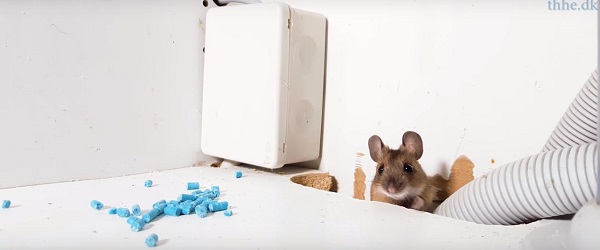Many people before they use the poison will be concerned if the poison will kill the mice inside the home or if they will
go outside to die there. The rodenticides are normally anticoagulants. The myth is that the poisons that contain anticoagulants
will make the mice feel thirsty and then they will go outside to look for water and will die outside. There is some truth here
since a large number of mice will go outside to die, but in other cases the mice may choose to go to their nests and they will
end up dying there. The problem is that most of the times these nest are found within the houses.

When the mice die when they are inside, there is a low possibility of developing a bad smell. The bad smell turns out to be a problem if
a rodent dies at a place which is un-ventilated or too warm. With 99 percent of the cases, there will no problem. If you want to deal with
the bad smell, it will be important to start dealing with the infestation first. This is because even if you do not use poison, the mice will
still die from natural causes and there can be a high chance of getting a bad smell in the home. A rodenticide should be used together with
rodenticide baits. When a rat eats the poison in the trap, it will die inside the trap and it will be easy to remove it, reducing problems
of bad odor.
If you want to get rid of the mice on your own, you should do the following:
The first step to control the mice is inspecting where it feeds and excluding the mice by closing all the entry points. When it is possible, you
should get rid of the pet and human food resources that are accessed by the mice. Keep the food in closed containers. The counter tops, sinks and
kitchen floors should be free from all the food remains.
Exclusion involves checking the openings where the mice enter into the home. The mice can enter into cracks found on the walls, floors and foundations.
The mouse may fit within a tiny opening because they have soft cartilage. They may squeeze themselves in a small gap found between the drainage or utility
lines. Any opening that it is greater than 1/4inch can serve as an entrance to the mice and it has to be sealed. The mice may also be dealt with by placing
bait and traps where they have been detected.
However, if you see that you do not make progress when it comes to getting rid of the mice in your home, you should know the right time to get help. It is
better to hire an animal control service when you see any sign of the house mice to avoid future damage. However, you should know that it may cost some money.
If you do not want that poison used in your home, you should ask if there are other methods the company has to deal with the house mice.
Go back to the
How to get rid of mice in the attic home page. You might also want to read about
how to kill mice and why the use
of snap traps is better than
mouse poison. Read an analysis of the different types of traps and how to use them on the
how to trap mice page.
Learn why
bait is not as important as trap type, placement and location. Also read a full analysis of
mouse repellent to understand why it
never works. If you see droppings and want to identify them, read the
mouse poop page. If you need to hire professional help, read about
how much does mouse removal cost?
or you can read this site to learn how to do it yourself. Feel free to email me about Does poison make mice thirsty and die outside